High Entertainment by David Robbins
Reliable Copy
Reliable Copy
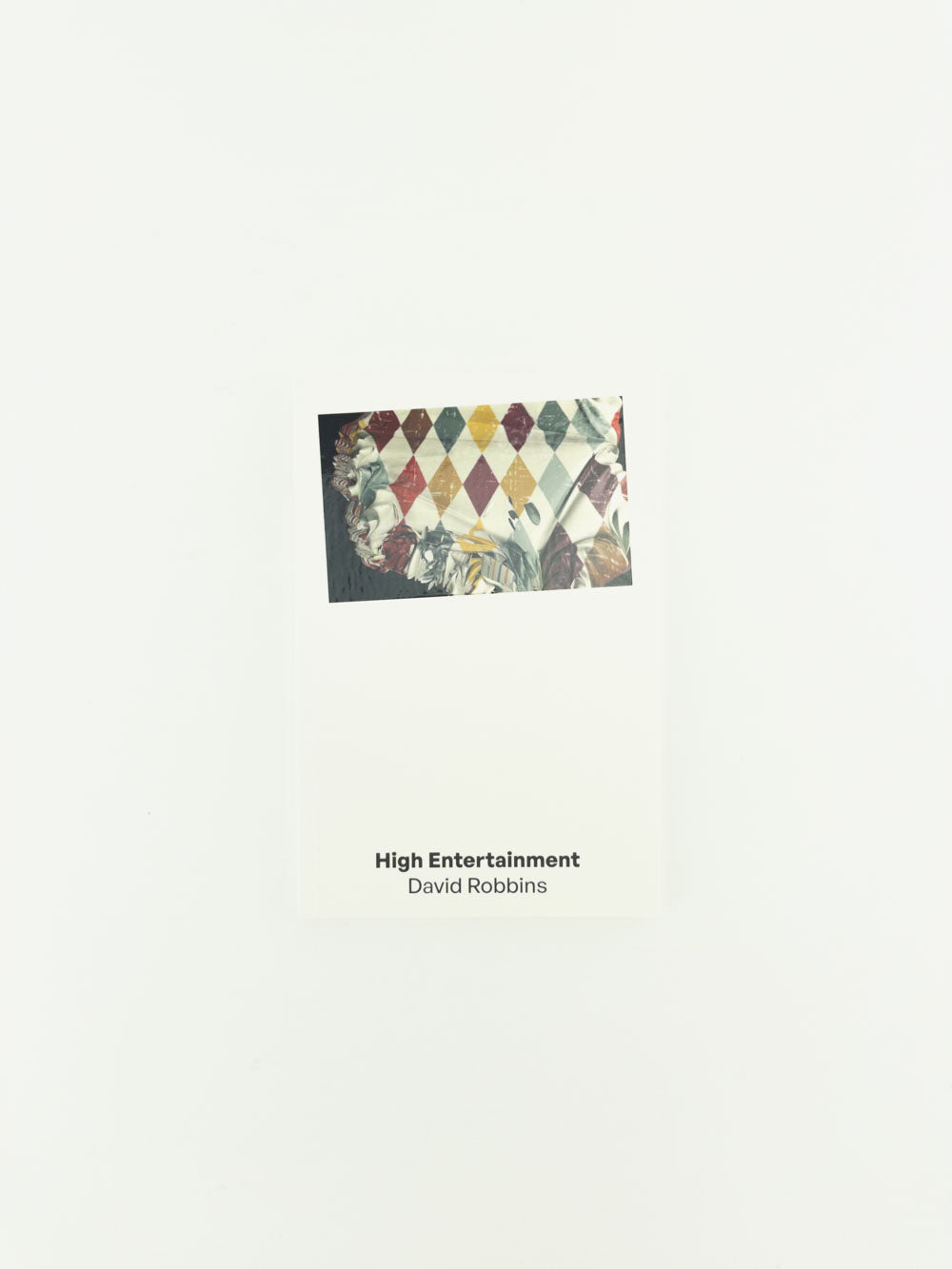
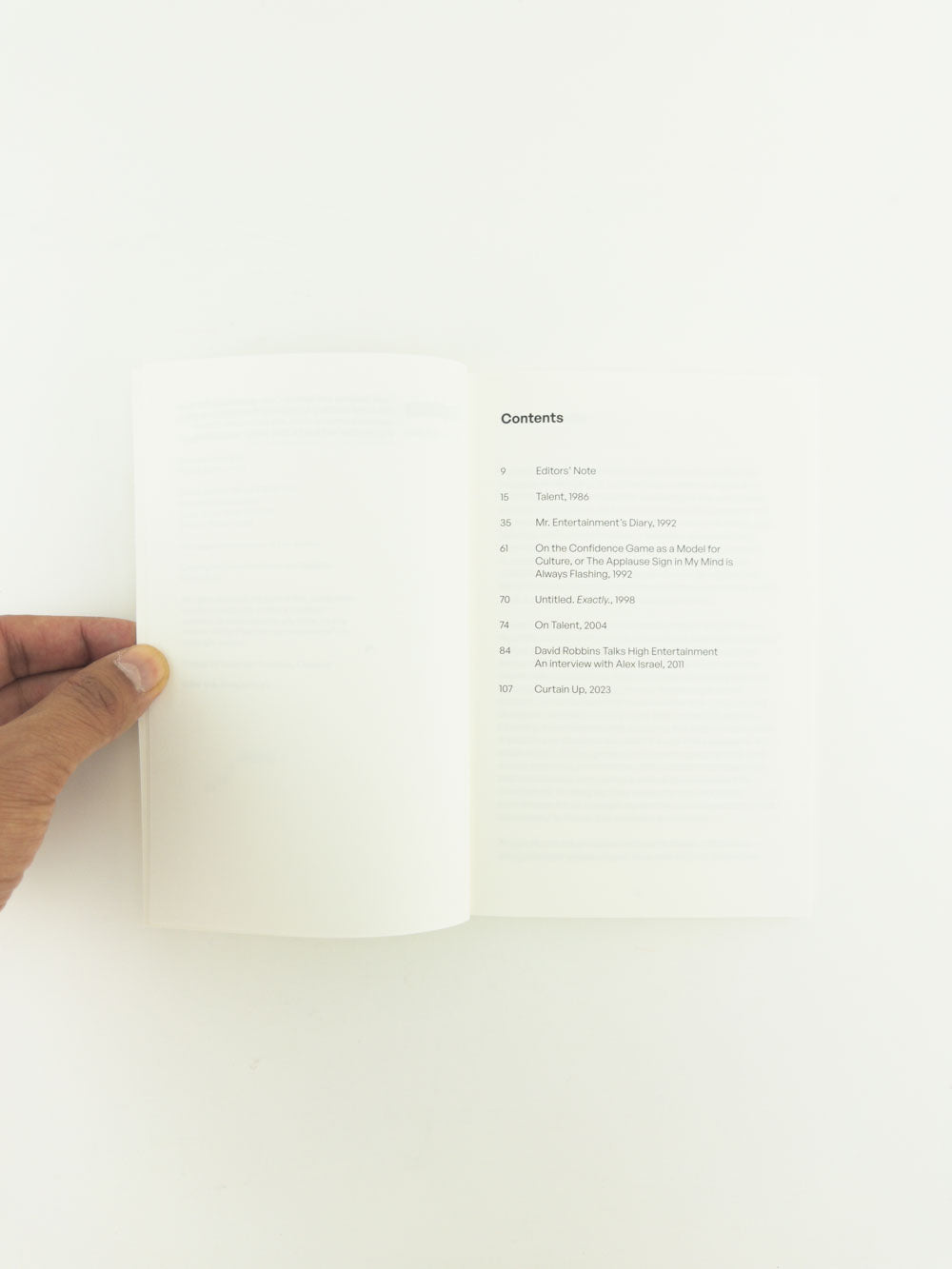
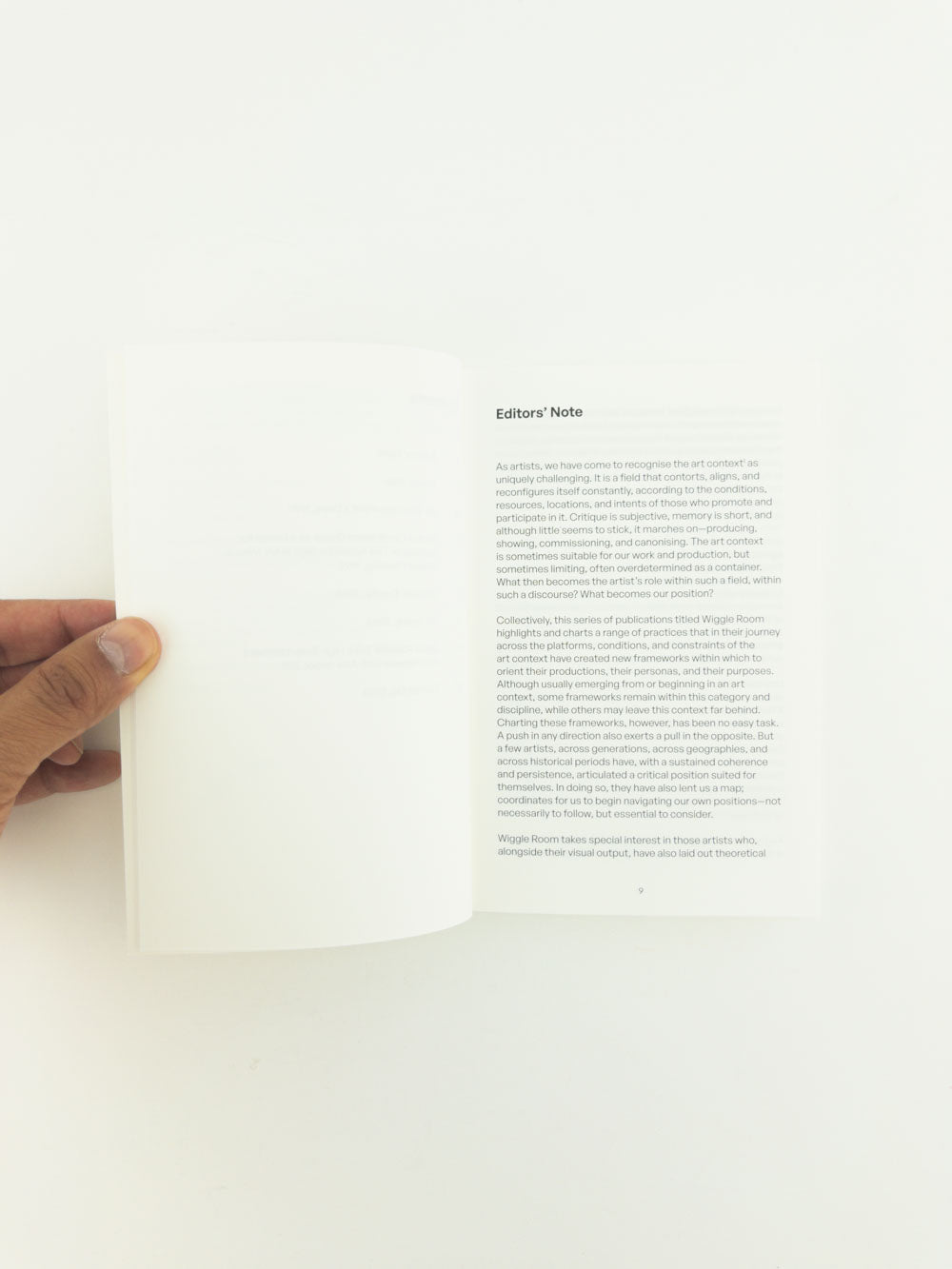
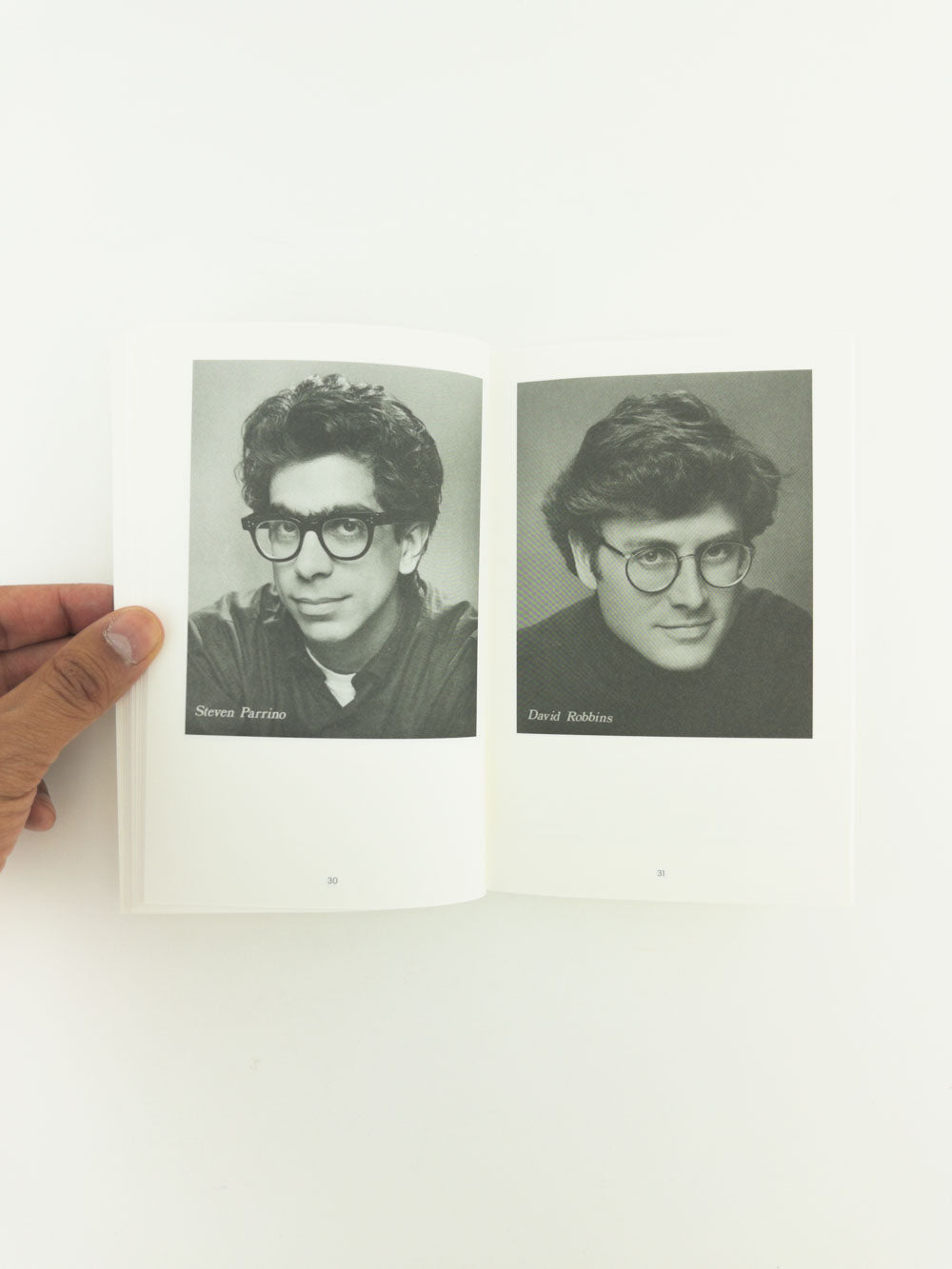
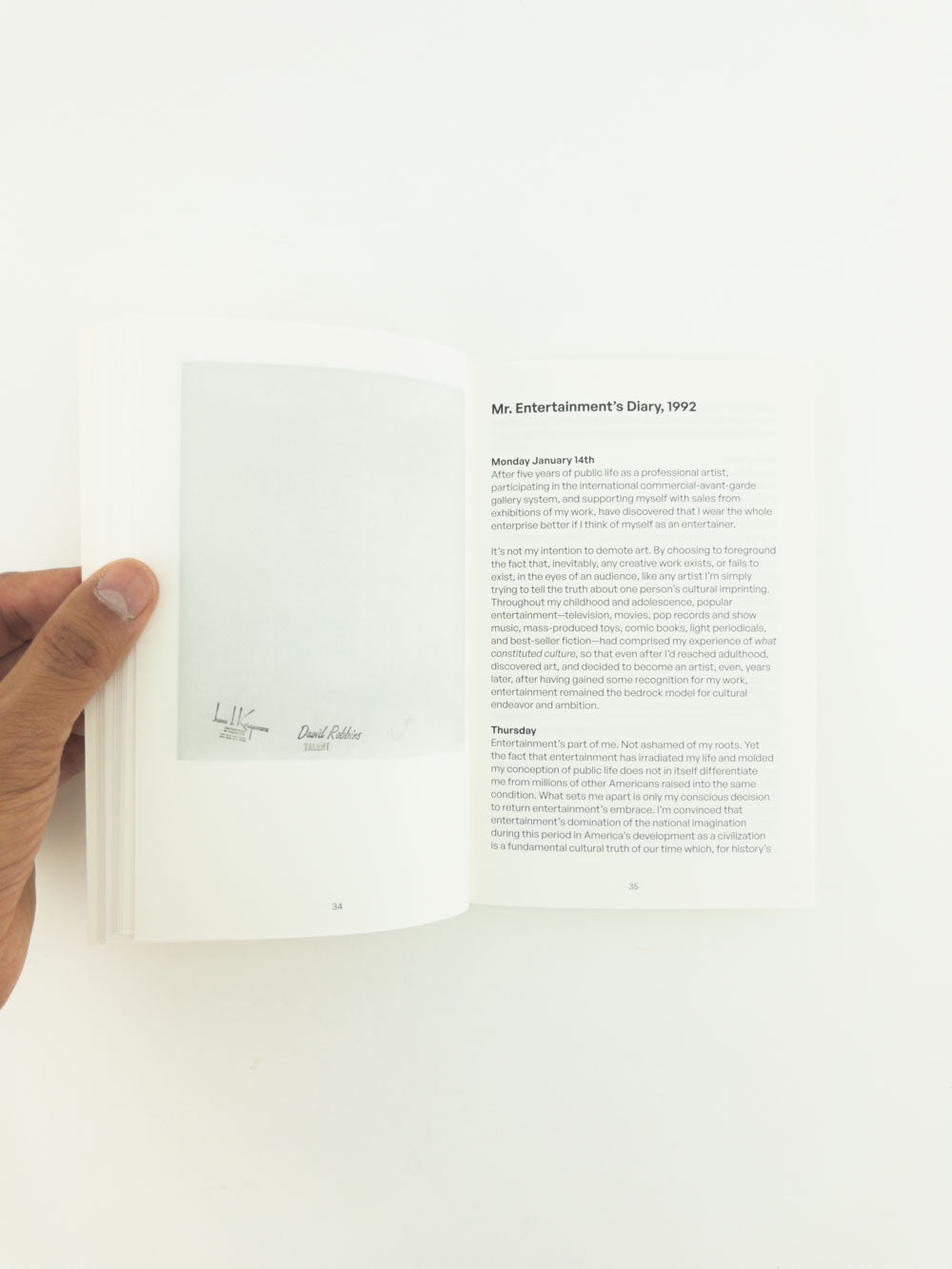
1/5
2/5
3/5
4/5
5/5
High Entertainment by David Robbins
Reliable Copy
Reliable Copy
‘High Entertainment’ by David Robbins argues for a category of cultural production that combines the experimental ethos of art with the accessibility of entertainment. ‘High Entertainment’ eschews the specialised, exclusionary language on which art has increasingly come to depend, in favour of a communication model that extends and elevates the pop grammars to which we are exposed from our earliest years.
Bringing together a selection of essays, an interview, and an artwork which explore the development of this framework, this book touches upon four decades of Robbins’ engagement with the idea of High Entertainment—starting from the 1980s, through its moment of clearest resolution with the advent of digital technology, all the way to the present.
For four decades, in artworks and writing, David Robbins has promoted a frank, unapologetic recognition of the contemporary overlap between the art and entertainment contexts. After working at Andy Warhol's Factory, he educated himself by interviewing artists active in early 1980s New York, and soon began showing his own art at East Village galleries. After three dozen solo exhibitions, he withdrew from the art world to discover what his imagination did without continuous prompting from the profession, in the process of identifying and advancing other "art-adjacent" categories of imaginative endeavour in his books 'High Entertainment' (2009) and 'Concrete Comedy: An Alternative History of Twentieth-Century Comedy (2011)'.
Bringing together a selection of essays, an interview, and an artwork which explore the development of this framework, this book touches upon four decades of Robbins’ engagement with the idea of High Entertainment—starting from the 1980s, through its moment of clearest resolution with the advent of digital technology, all the way to the present.
For four decades, in artworks and writing, David Robbins has promoted a frank, unapologetic recognition of the contemporary overlap between the art and entertainment contexts. After working at Andy Warhol's Factory, he educated himself by interviewing artists active in early 1980s New York, and soon began showing his own art at East Village galleries. After three dozen solo exhibitions, he withdrew from the art world to discover what his imagination did without continuous prompting from the profession, in the process of identifying and advancing other "art-adjacent" categories of imaginative endeavour in his books 'High Entertainment' (2009) and 'Concrete Comedy: An Alternative History of Twentieth-Century Comedy (2011)'.